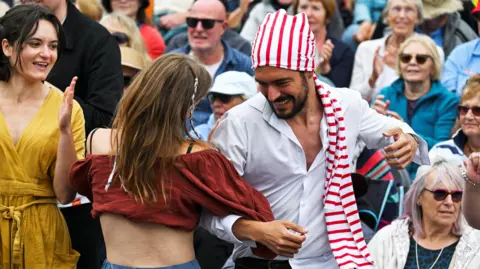- Housing
What’s the average Social Security payment? Plus: Changes for 2026
时间:2010-12-5 17:23:32 作者:Australia 来源:Management 查看: 评论:0内容摘要:But DOGE’s transparency and methodology have been repeatedly questioned. The only accounting made available to the public adds up to less than half of the claimed figure.But DOGE’s transparency and methodology have been repeatedly questioned. The only accounting made available to the public adds up to less than half of the claimed figure.
Khobby said he was left stranded without a passport and the police refused to help.“This is not about only the Chinese people,” Khobby said. “Even in Vientiane, they have immigration offices who are involved. They are the ones giving the visas. When I got to Laos, it was the immigration officer who was waiting for me. I didn’t even fill out any form,” he said.

With help from the Ghanaian embassy, Khobby and Jojo were eventually able to retrieve their passports, and with assistance from family and friends, they returned home.The IJM’s Heintz, said that target countries for scammer recruitment – such as those in Africa – need better awareness of the dangers of trafficking.“There needs to be better awareness at the source country level of the dangers associated with these jobs,” he said.

Reflecting on what led him to work up the courage to lead a strike in the scam centre, Khobby considered his childhood back in Ghana.“I was a boy who was raised in a police station. My grandpa was a police commander. So in that aspect, I’m very bold, I have that courage. I like giving things a try and I like taking risks,” he said.

Jojo told Al Jazeera how she continues to chat online with friends who are still trapped in scam centres in Laos, and who have told her that new recruits arrive each day in the GTSEZ.
Her friends want to get out of the scam business and the economic zone in Laos. But it is not so easy to leave, Jojo said.Kids generally don’t need the vaccination, FDA chief said
Makary said, “There’s no evidence healthy kids need” the vaccine.This is disputed. Most children will not face serious illness from COVID-19, but a small fraction will. Experts draw different lines when deciding how widespread the vaccination programme needs to be, given this scale of risk.
During the 2024-25 COVID-19 season, children and adolescents age 17 and younger comprised about 4 percent of COVID-19-associated hospitalisations. The relatively small number of serious cases among children has driven the belief among some scientists that the universal vaccination recommendation is too broad.However, among all children, rates of COVID-19-associated hospitalisations were highest among infants less than six months old.
- 最近更新
- 2025-07-07 07:46:36Eric Trump opens door to political dynasty
- 2025-07-07 07:46:36Disrupted or displaced? How AI is shaking up jobs
- 2025-07-07 07:46:36Working hard to look busy: why young employees are ‘task masking’
- 2025-07-07 07:46:36Working hard to look busy: why young employees are ‘task masking’
- 2025-07-07 07:46:36Summer books 2025: the best titles of the year so far
- 2025-07-07 07:46:36Tips from the top: an arty Saturday in Lagos with author and publisher Toni Kan
- 2025-07-07 07:46:36The best support for a friend with cancer? Presence, listening and space to vent
- 2025-07-07 07:46:36Can start-up success be taught?
- 热门排行
- 2025-07-07 07:46:36How much should you have in your 401(k)? How your balance compares to others by age
- 2025-07-07 07:46:36How the culture war is remaking advertising
- 2025-07-07 07:46:36even the magazines you subscribe to
- 2025-07-07 07:46:36Summer books 2025: the best titles of the year so far
- 2025-07-07 07:46:36Iran has not agreed to inspections or given up enrichment, says Trump
- 2025-07-07 07:46:36Is that afternoon golfing really a form of corporate education?
- 2025-07-07 07:46:36From savings to mortgages: Biggest winners and losers after latest Fed rate pause
- 2025-07-07 07:46:36European capitals insist US drops levies on EU as part of any framework deal
- 友情链接
- 'Wedding bomb' murderer gets life sentence in India Will anyone miss a council flood committee? How 'laughing gas' became a deadly - but legal - American addiction How 'laughing gas' became a deadly - but legal - American addiction Chile's salmon farms hope for calmer waters Security breaks down in Gaza as desperate people search for food Trump tariffs can stay in place for now, appeals court rules 'People show me their intimate tattoos of my album art' Trump administration to 'aggressively' revoke visas of Chinese students Meet the team paid to break into top-secret bases Girl, 15, raped by masked man who led her from bus stop China student says college made her 'take off trousers' for period leave TT car parks closed due to wet conditions Busy hurricane season expected as forecasters fear Trump cuts The world's most dangerous country for trade unionists Your pictures on the theme of 'winter walks' The real problem facing Britain's shrinking military Three quarters of driving test centres at maximum wait time Fortnite faces complaint from actors' union over AI Darth Vader US green energy firms brace for federal funding cuts Trump administration seeks to pull estimated $100m in Harvard funding Railway murals ask how men can stand up for women Tariffs court fight threatens Trump's power to wield his favourite economic weapon An Indian teacher was killed - then he got falsely labelled a terrorist Migrants' bodies found in boat washed ashore on Caribbean island India's Banu Mushtaq makes history with International Booker win Mother who sold six-year-old daughter given life term in South Africa Deborra-Lee Furness describes 'betrayal' after Hugh Jackman divorce Reeves outlines plan for £25bn pension 'megafunds' What we know about Israeli embassy staff shooting
